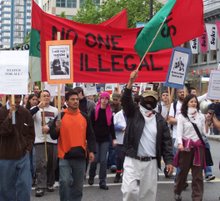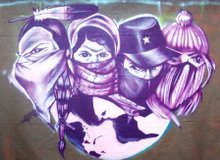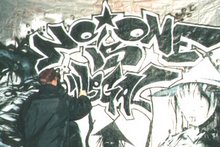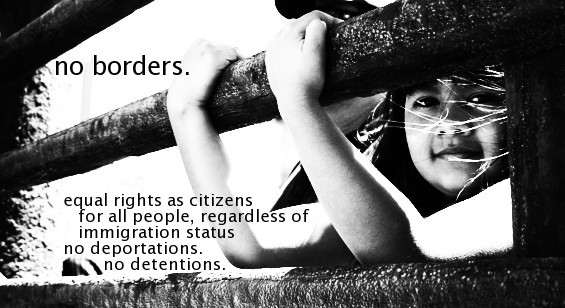US “democracy promoters” and regime change in Iran by Michael Barker December 18, 2006
The Iranian question is on everyone’s lips at the moment, and judging by the ongoing discussions in both the mainstream and alternative (progressive) media, it is apparent that, one way or the other, the US (and its coalition of willing cronies) has its sights firmly set on bringing regime change to Iran.
So far, for the most part, the alternative media has focused on the nuclear threat posed by the Middle East’s most dangerous lawbreaker, Israel. The mainstream media, however, has persistently and erroneously portrayed Iran as the “real” nuclear threat...Thus, although the alternative media has tended to focus on the Israeli nuclear threat in relation to the “Iranian problem,” military intervention is only one among many instruments available to the architects of imperialism to promote regime change in Iran. Other methods commonly used to “encourage” geo-strategically favourable “changes” in leadership include economic and diplomatic persuasion. However, a relative newcomer to the armoury of foreign policy elites – and the topic of this article – is the use of democracy itself as a tool of foreign policy. A tool which is arguably one of the most potent weapons in the war of ideas waged by policy elites against progressive activists.
The strength of this new “democratic strategy” lies in its unique public relations value, which allows those who wield it to cloak their “free-market” agendas in the powerful rhetoric of human rights and humanitarianism. Ironically, the democracy idea was first picked up with gusto in the early 1980s, when President Reagan (with bipartisan support) created the quasi-nongovernmental organisation, the National Endowment for Democracy (NED). Needless to say, the Reaganites newly defined “democracy” quickly debased democracy as commonly understood by the American populous: a not wholly unexpected development from a government reliant upon covert propaganda for implementing their deeply regressive domestic politics.






